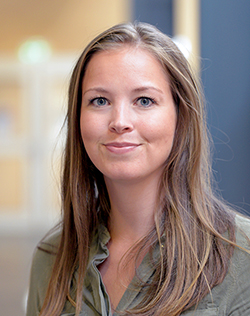Background
A large proportion of persons with acquired brain injuries (ABI) have cognitive deficits that affect the way they communicate and their social skills. Despite the far-reaching effects of social communication problems after ABI, there has been scant evidence-based research addressing this area. So far, there have not been conducted any controlled trials investigating standardized social communication assessment methods, or treatment of social communication disorders in Norway. Due to the lack of knowledge about these disorders among both professionals and healthcare providers, many people live with their social communication disorder undetected and without treatment. Internationally, several group interventions have been developed for treating social communication disorders during the last years. One of the group interventions with promising results internationally is: Group Interactive Structured Treatment (GIST). GIST contains 13 group sessions about relevant areas of social communication and two follow up sessions after 3 and 6 months. In every group session a new topic is presented, discussed and practiced in group exercises.
The Project
In the project we want to examen the effect of GIST-treatment given in two different ways. We will conduct a Randomized Controlled Trial (RCT) with in total 60 participants with social communication disorders. The participants are randomized into two groups, 30 in each group. The first group will get traditional GIST treatment once a week as outpatients living at home during the treatment - over a period of 13 weeks. The other group will work as a waiting list control group (with treatment as usual). The control group will later get an intensive version of GIST- treatment as inpatients at Sunnaas rehabilitation hospital over a period of 4 weeks.
The study is divided into 3 understudies, which are presented below;
- The main aim in study 1 is to examine the efficacy of a Norwegian translated version of GIST treatment in people with acquired social communication disorders.
- The main aim of study 2 is to examine if there are any differences between in the results of the patients who received GIST treatment (study 1) compared to the intensive GIST treatment given to inpatients at Sunnaas Rehabilitation Hospital.
- Every paritcipant has chosen a significant other/family member who has an important role during the GIST- treatment(s), so the main aim of study 3 is to examine if the close family members experience any difference in the patient’s social communication skills 6 months after traditional GIST- and intensive GIST treatment.
The project duration is four years: from 1th of April 2017 to 1th of August 2021.
Supervisors
Main supervisor: Melanie Kirmess, Associate Professor at the Institute of Special Needs Education, University of Oslo
Co-supervisor: Jan Stubberud, Associate Professor 2 at the Psychological Institute, University of Oslo

